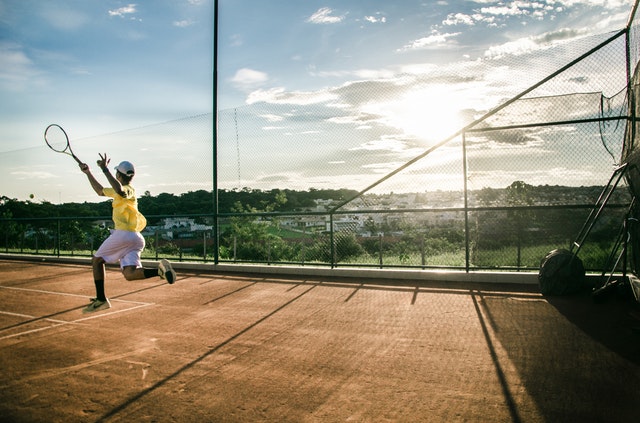Junior tennis players are turning more than ever to mental training in order to get an edge over their peers. This is a smart move as thedifference between winning and losing in tennis often boils down to which player is mentally tougher.
As Venus Williams has said, tennis is 50% a mental game, 50% learning the strokes and being fit enough.
Given this crucial role of the mental side of tennis, it’s not surprising that I’m receiving more and more enquiries from parents and coaches looking for help for young players in this area.
Sometimes, however, I’m asked whether mental training is really worthwhile for young players.
Sometimes parents are concerned that mental training may be too complex, or that their child will not be able to concentrate on the training.
My experience is that young players understand the value of mental training and are quick to grasp the concepts behind the mental skills that I teach. In addition, mental training helps build a deep capacity for concentration in young people.
If you’re worried that a young player won’t be able to concentrate, then that is reason enough to enrol them in mental training! Concentration is a learned skill like any other.
Again and again I’ve seen young players build a level of maturity and mental strength that surprises their parents and coaches.
So, my first message is to have faith in the huge capacity that all junior players have to change and improve their mental approach to tennis. There are no junior players who would not benefit from mental training.
I would also encourage you to think about mental training as a way to increase a junior player’s love and enjoyment of playing tennis. Yes, for sure, improved results and emotional maturity will result from mental training. But the biggest motivator for all tennis players, young or old, is the sheer pleasure of playing.
Mental training maximizes our potential to enjoy playing by enabling us to let go of negative emotions or thoughts. It enables us to focus on the present moment, rather than worrying about results. Focusing on the present, rather than an imagined futu re, is the best way to perform to an optimum level on court.
re, is the best way to perform to an optimum level on court.
Young players who have not received mental training often battle with thoughts and emotions on court. Anger and despondency are common when things don’t go their way during a match.
They can get overwhelmed by nerves, especially on the big pressure points. Many find themselves choking, despite having superior ability to their opponent.
Others lack the ability to concentrate throughout a match, or get easily distracted by off-court noises such as parents’ shouting courtside. Many find it hard to recover from making mistakes, or when a line call goes against them.
I teach Mindfulness-Based Tennis Psychology, a method which trains players how to deal effectively with difficult and distracting thoughts and emotions, develop deep focus for matchplay, and play the big points with confidence every time.
My training also enables players to play in the zone more often. It does this by helping players reduce the amount of cognitive activity (thinking) which is present in the mind. Thinking is a barrier to flow, so eliminating unnecessary thinking makes it more likely that a player will slip into flow states on court.
Once training is complete, players will have a mental skillset which enables them to be fully self-sufficient and effective athletes. They will be able to avoid the psychological pitfalls that so many players fall into.
The results of mental training are transformative and empowering. Players become confident and calm. They feel ready and equipped to face any challenge during a match. They will be able to accept their mental experience, no matter how difficult, and refocus on the match at will.
For young players this empowering experience can boost confidence off-court too, as well as helping boost their ability to focus on academic work. Mental training is an investment that pays dividends in a variety of areas. It’s an investment that continues to pay off long term, as in just a matter of weeks, young players can develop mental skills that will last them throughout their playing career.
